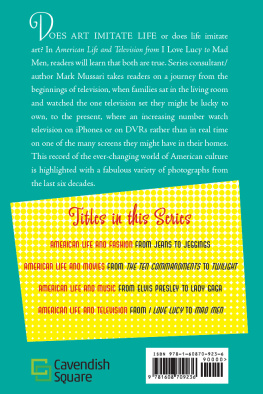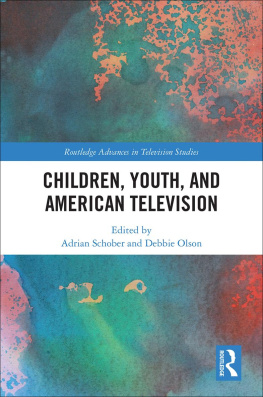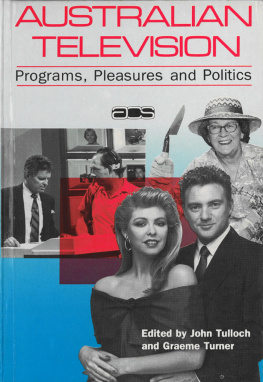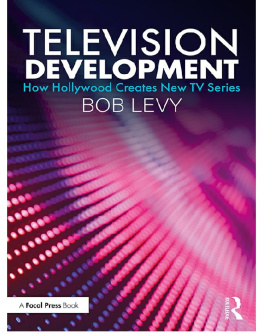Notice
This book is intended as a reference volume only, not as a medical manual. The information given here is designed to help you make informed decisions about your health. It is not intended as a substitute for any treatment that may have been prescribed by your doctor. If you suspect that you have a medical problem, we urge you to seek competent medical help.
Mention of specific companies, organizations, or authorities in this book does not imply endorsement by the publisher, nor does mention of specific companies, organizations, or authorities imply that they endorse this book.
Internet addresses and telephone numbers given in this book were accurate at the time it went to press.
2006 by Dimitri A. Christakis and Frederick J. Zimmerman
All rights reserved. No part of this publication may be reproduced or transmitted in any form or by any means, electronic or mechanical, including photocopying, recording, or any other information storage and retrieval system, without the written permission of the publisher.
Johns story in Chapter 1 was reprinted with permission from Pediatrics, Vol. 113, pp. 70813, 2004 by the American Academy of Pediatrics. Dan Cooks story in Chapter 7 was reprinted from Stay Free! Issue #20, Fall 2002 (http://www.stayfreemagazine.org/) with permission from the publisher.
Illustrations by Sandy Freeman and Joanna Williams
Book design by Joanna Williams
Library of Congress Cataloging-in-Publication Data
Christakis, Dimitri Alexander.
The elephant in the living room : make television work for your kids / Dimitri A.
Christakis, and Frederick J. Zimmerman.
p. cm.
Includes bibliographical references and index.
ISBN-13 9781594862762 hardcover
eISBN-9781623361952
ISBN-10 1594862761 hardcover
1. Television and children. I. Zimmerman, Frederick J., date II. Title.
HQ784.T4C545 2006
302.23'45083dc22 2006018441

We insprie and enable people to improve their lives and the world around them
For more of our products visit rodalestore.com or call 800-848-4735
For Lenna, with whom It all began, and for Aleco, who taught me about high levels of abstraction, but most of all for Danielle Zerr, Alexi, and Arianamy inspiration and my best friends at family movie night.
D.A.C.
To Sarah Stein and to our sons, Ira and Juliuswho make everything work in our family.
F.J.Z.
This instrument can teach, it can illuminate; yes, and it can even inspire. But it can do so only to the extent that humans are determined to use it to those ends. Otherwise it is merely wires and lights in a box.
Edward R. Murrow, keynote speech at the
1958 convention of the Radio-Television News Directors Association
CONTENTS
ACKNOWLEDGMENTS
T his book owes much to a whole host of people who in various ways and at various times were instrumental in making it happen.
The final version, such as it is, could never have come about without the thoughtful comments and careful edits provided at various stages by Dick Stein, Sarah Stein, and Danielle Zerr, each of whom patiently read one or more versions of the entire manuscript. Others also offered their helpful advice, including Howard Yoon, Stacey Prohaska, and Jennifer Freeh. Our editor at Rodale, Mariska van Aalst, patiently edited the later versions and made many useful contributions.
We are fortunate to work in a field with many dynamic, thoughtful, and generous researchers. Their work has been underrecognized in the public sphere, and we hope this book goes some way toward redressing that problem. We are gratified to be working in such a collegial field. Many of our colleagues (too many to mention) have helped us in various ways in our research and have influenced our thinking. Several research colleagues warrant explicit thanks for their generous response to specific questions about the book. Joanne Cantor was kind enough to read drafts of an early chapter and to generously give us advice on many aspects of the writing and publishing of it. Kris Harrison, Tom Robinson, Amy Jordan, Caroline Oates, Juliet Schor, Jessica Taylor-Piotrowski kindly engaged us in discussions or responded thoughtfully to e-mail queries about specific aspects of their research. To them all, we are grateful.
Our ongoing research is made possible by Lyn Bassett, Tasheda Navarro, Joe Leonard, Michelle Garrison, Andrea Richardson, Darcy Thompson, Becca Calhoun, Tori Lollemont, Jane Yoon, and Melissa Zent. But first and foremost, it relies on the generous assistance and invaluable contributions of the many families that have and continue to participate in our studies. We are grateful to all of them.
We owe a special debt of gratitude to Fred Connell, who has served as a mentor and friend to both of us.
Each of us, in turn, has personal influences that are reflected throughout the text.
For Fred, this project has been a wonderful opportunity to reflect on the thoughtful, loving, and always engaged parenting of his mother and father, Joanell and Fred M. Zimmerman. Their love of children and appreciation of the value of childhood have been profound influences. Freds siblings, Carita, Christina, Brigitte, and Hans, are much-loved companions and friends. None will reveal the secret of the spontaneously malfunctioning television of 1975. In his professional work, Fred is never far in one form or another from the advice and philosophy of Michael Carter, and he can only try to live up to the guidance of Edward Cronin, that Irish teacher of English.
For Dimitri, his beloved siblings, Nicholas, Anna-Katrina, Quan-Yang, and Nora, with whom he negotiated control of the television as a child, were an enormous influence on his understanding of its role in families. In thinking about parenting, he continues to draw on the memory of his mother, Lenna Saranti, whose courage and dedication to that art in the face of extraordinary adversity remain a standard he can strive for but never reach. Finally, his friends Evan Westerfield, James Forman, and Ted Vial have always been willing to tell him what they think of everything he says. That assistance has become something he cannot live without.
Our most important acknowledgments are to Danielle Zerr and Sarah Stein, each of whom has displayed unstinting support and patience in the long process of pulling this book together. They are amazing people, wonderful mothers, and the ideal co-parents. We are eternally grateful for their intelligence, wit, wisdom, help, and love.
CHAPTER 1
LOOKING AT THE ELEPHANT
When television is good, nothing is better. When its bad, nothing is worse.
Newton Minow, chairman of the Federal Communications Commission in the 1960s
The many shower gifts that Elizabeth and David received on the happy occasion of the imminent birth of their son included the usual mix of sleepwear, crib toys, and a book about the first year, plus something unexpectedan educational baby video. A real lifesaver, their friend Kara said as she gave it to them. My baby just loves it, and it gives me some time during the day to myself. Elizabeth and David graciously accepted it, looking at the cover image of a brainy-lookingor rather, nerdy-lookingbaby with spiked hair and wire-rimmed glasses. It gave them pause. They had discussed many facets of their lives that would affect their child, including their house, the school district, and their religion, but they really hadnt thought about what role television would play in their new babys life.










